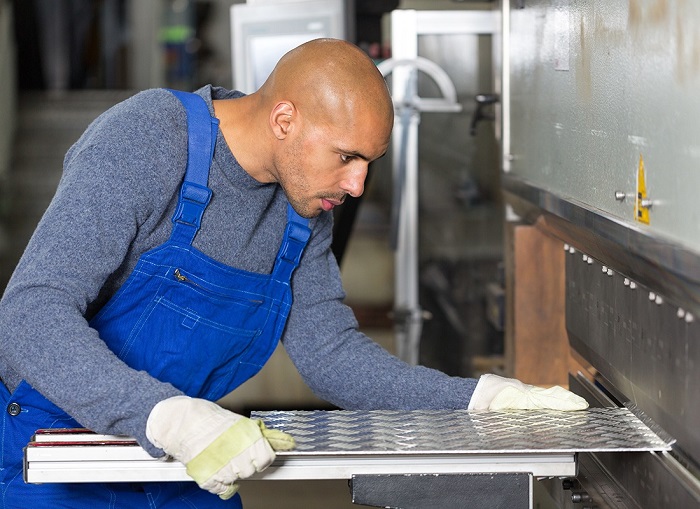What is a Metal Worker?

A metalworker specializes in manipulating various types of metals to fabricate, assemble, and repair structures and components. Using both manual and automated tools, they transform raw materials into finished products, working with metals like steel, aluminum, iron, copper, and brass. Their expertise encompasses a wide range of items, from small parts to large structures.
Metalworkers are skilled in numerous techniques, including welding, soldering, brazing, cutting, bending, and forging. They interpret blueprints and specifications to ensure the correct dimensions and finishing details. Their work spans industries such as manufacturing, construction, automotive, aerospace, and fabrication shops, involving tasks like constructing frameworks, building machinery parts, repairing equipment, and crafting decorative items.
What Does a Metal Worker Do?
Metalworkers play a crucial role across various sectors, contributing significantly to the creation of metal structures, machinery, and products.
Duties and Responsibilities
The specific duties of a metalworker can vary based on the industry and specialization, but common tasks include:
- Metal Fabrication: Interpreting blueprints and using tools to cut, shape, and form metal pieces, employing techniques such as welding and forging.
- Welding and Joining: Specializing in welding, they create strong connections between metal parts using methods like MIG, TIG, or ARC welding.
- Metal Finishing and Surface Treatment: Involving processes like grinding, polishing, or applying protective coatings to enhance functionality and appearance.
- Equipment Operation and Maintenance: Operating and maintaining various tools and machinery, such as shears and plasma cutters.
- Quality Control and Inspection: Conducting inspections and using measuring instruments to ensure compliance with specifications and quality standards.
- Safety and Compliance: Adhering to safety protocols and using personal protective equipment (PPE) to minimize workplace risks.
- Collaboration and Communication: Working with engineers, designers, or project managers to coordinate tasks and ensure project completion.
Types of Metal Workers
Metalworkers may specialize in different areas of metalworking, including:
- Welder: Focuses on joining metal parts using various welding techniques.
- Sheet Metal Worker: Works with thin metal sheets to create products like ductwork and roofing.
- Precious Metal Worker: Specializes in working with precious metals to create jewelry and decorative items.
- Machinist: Operates machine tools to shape metal parts with precision.
- Pipefitter: Specializes in the installation and maintenance of piping systems.
- Blacksmith: Uses traditional forging techniques to create functional and artistic metal objects.
- Metal Fabricator: Works with metal sheets and bars to fabricate and assemble structures.
- Ornamental Metalworker: Crafts decorative metal pieces like gates and sculptures using various metalworking techniques.
Information provided by CareerOnlines, LLC and other sources.
Sections of this page includes information from the O*NET 29.0 Database by the U.S. Department of Labor, Employment and Training Administration (USDOL/ETA). Used under the CC BY 4.0 license.
CareerOnlines, LLC has modified all or some of this information. USDOL/ETA has not approved, endorsed, or tested these modifications.